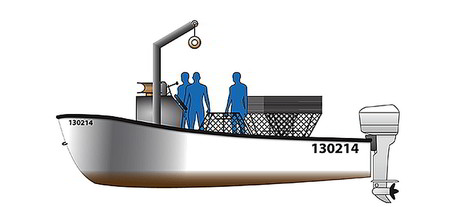TSBC calls for boats to carry EPIRBs

In an investigation report released last week into a fatal boating accident, the Transportation Safety Board of Canada (TSBC) reiterated a call it first made 16 years ago for vessels to carry emergency position-indicating radio beacons.
On the evening of 16 June 2015, the small fishing vessel CFV 130214, an open boat with three people on board, was reported overdue from a crab fishing trip in Placentia Bay, Newfoundland and Labrador. Joint Rescue Coordination Centre Halifax initiated a search, and the bodies of all three crew members were found the next day on Bar Haven Island. The crew members were not wearing personal flotation devices. The vessel was not found and is believed to have sunk.
In a statement released last week, the TSBC said, “The investigation ascertained that the open boat was not carrying a distress communication device (it was not required to have one on board). Previous TSB investigations have found that carrying an emergency position-indicating radio beacon (EPIRB) can help save lives, and the Board has recommended (TSB Recommendation M00-09) that small fishing vessels carry one or other similar equipment.”
According to the TSBC report, “Emergency position-indicating radio beacons (EPIRB) are required for vessels of 8 metres or more in length engaged on a home-trade voyage, Class I, a home-trade voyage, Class II, or a foreign voyage.”
It added, “There is no requirement for a fishing vessel of open construction of any length or of closed construction of 8 metres or less in length to be equipped with a very high frequency (VHF) radiotelephone. The open boat did not have an EPIRB or a VHF radiotelephone on board nor was it required to carry either of them. The only communications equipment on board was a cell phone stored in a watertight plastic bucket.”
$6.1m in govt funding to improve NSW rural connectivity
The funding will improve connectivity to around 1500 premises across the central west and...
Govt funds comms for Navy, Wi-Fi for evacuation centres
The government is upgrading communication systems on Royal Australian Navy ships, and also...
Call to standardise physical security of comms infrastructure
A new white paper from TCCA seeks to catalyse the creation of a global standard for the physical...





